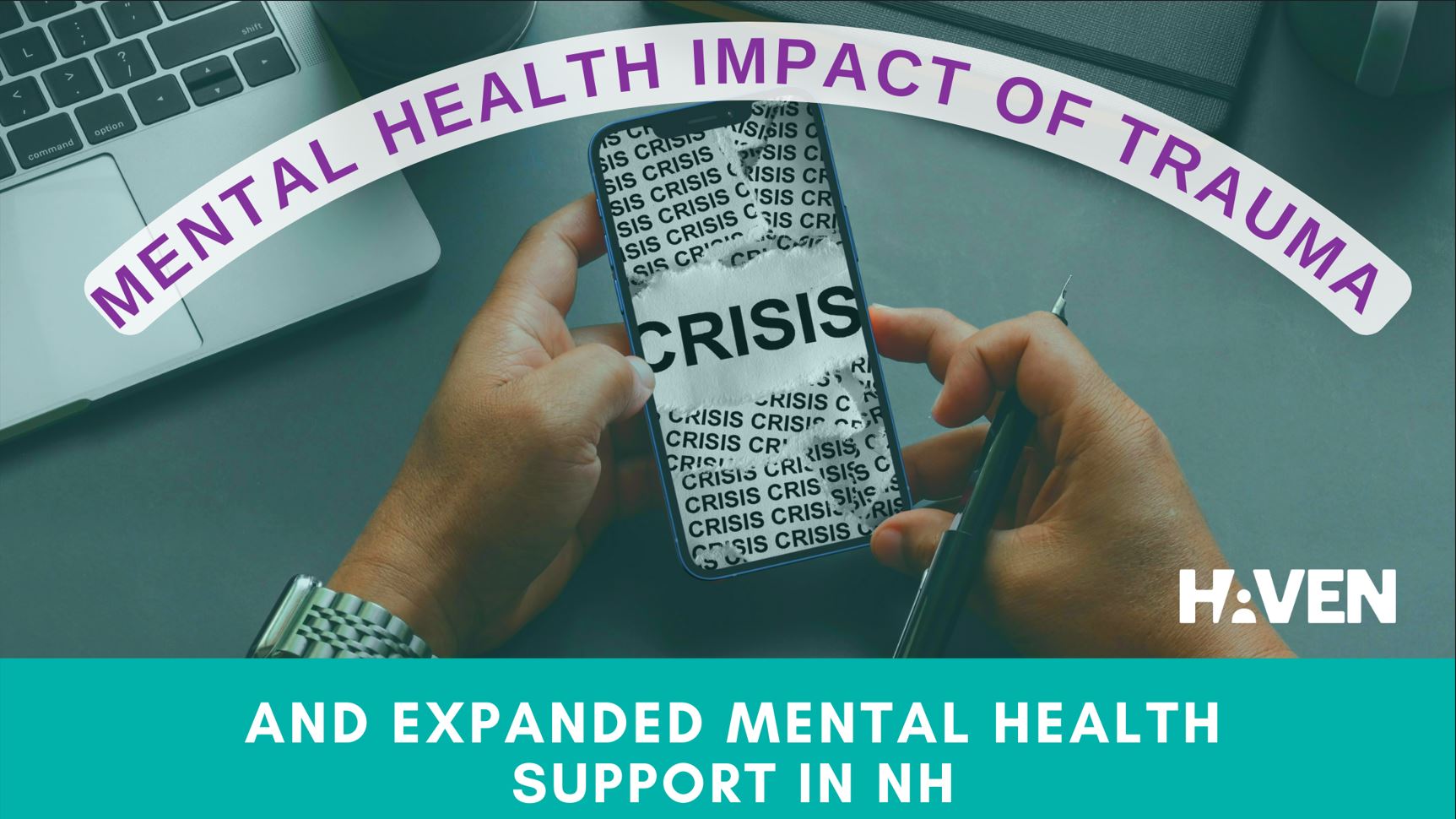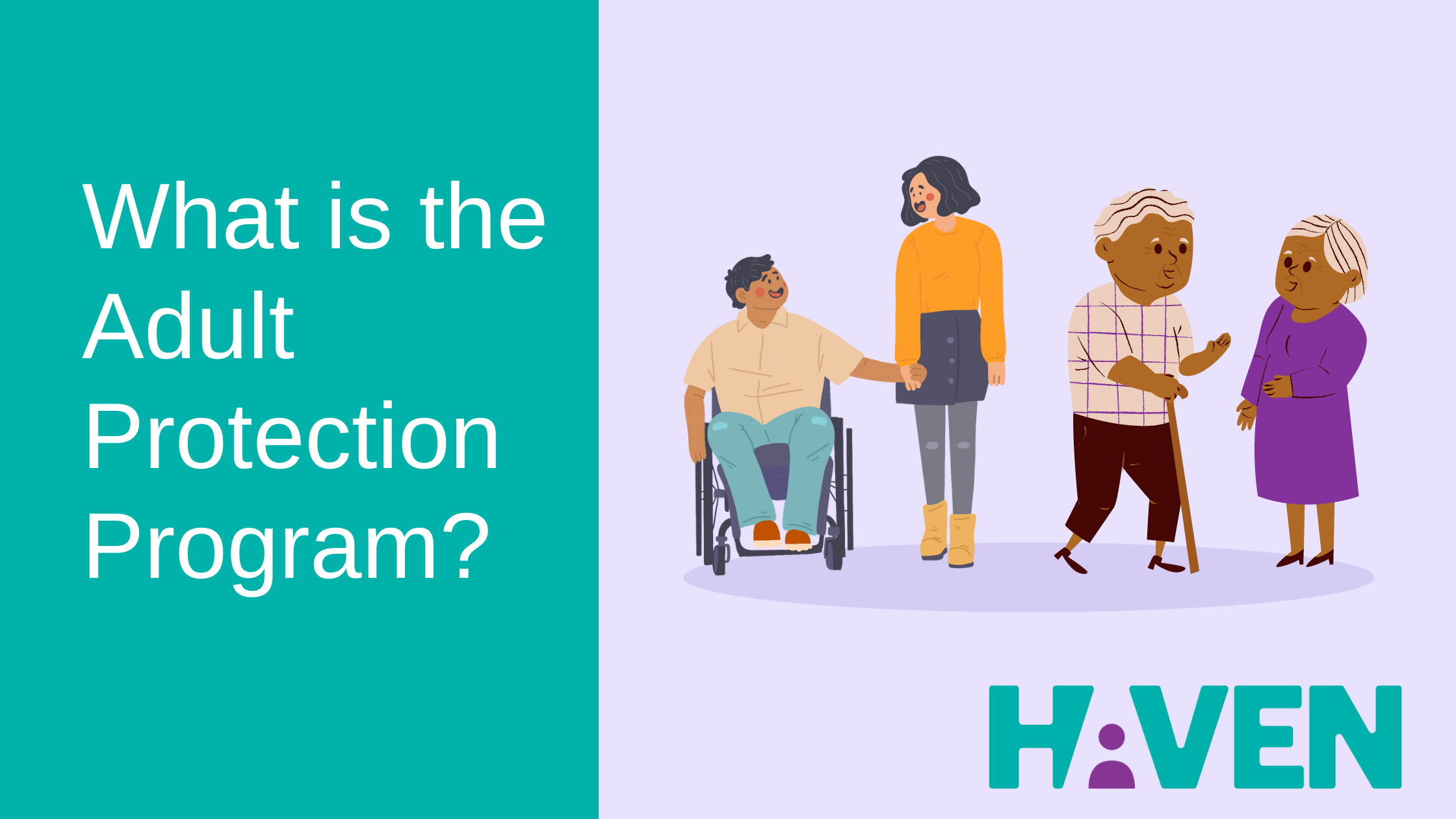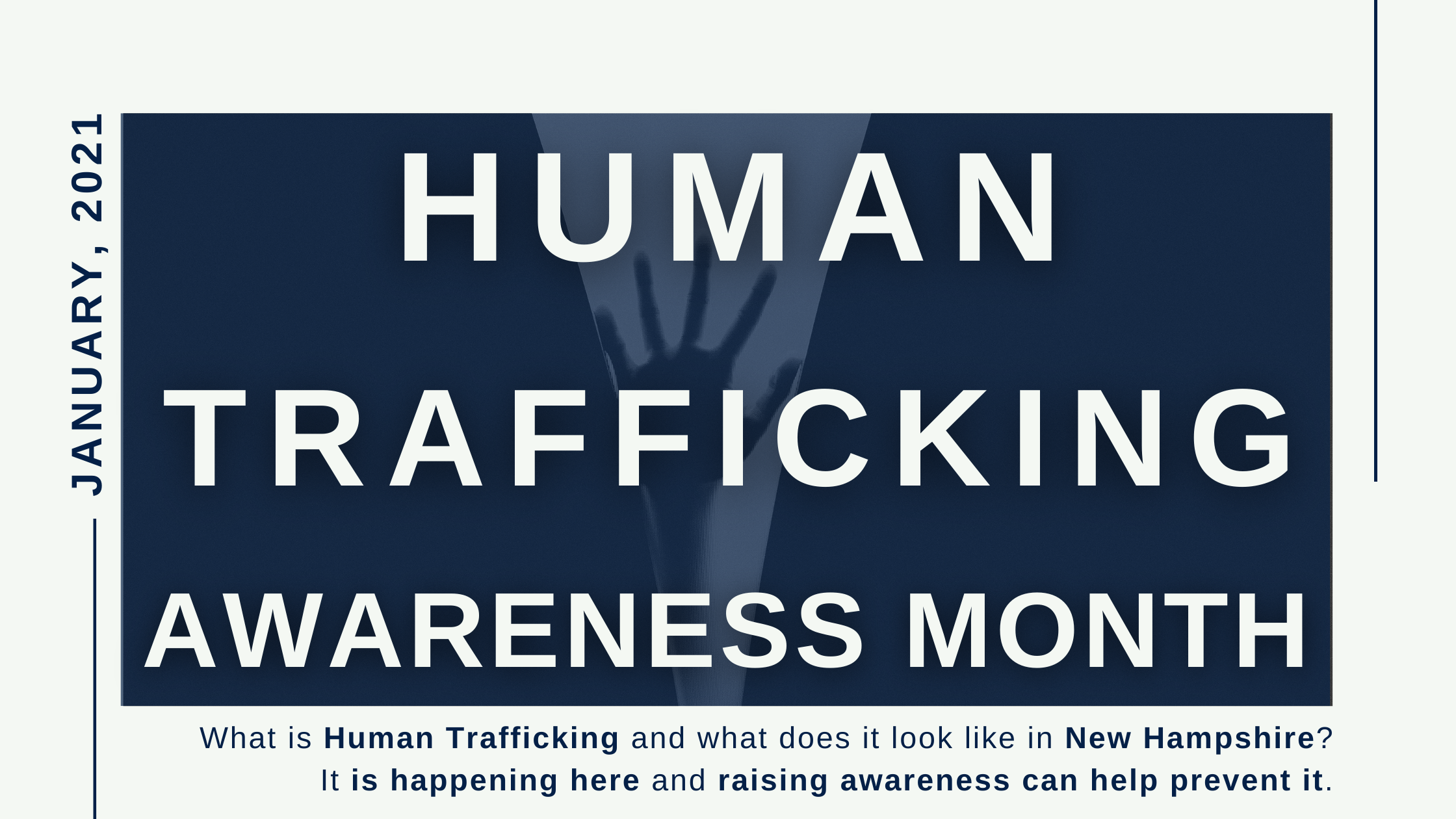
New Hampshire Expands Mental Health Supports to Address Statewide Crisis
- hvadmin
- July 14, 2022
- Uncategorized / Supporting Survivors / Awareness Matters / blog
- 0 Comments
People who have experienced sexual or domestic violence have more than physical wounds that need healing. The psychological wounds can last a very long time. Just like with physical triage to treat the trauma in the hours after an attack, support for the psychological and emotional impact is critical as well. It is difficult to face but getting the right supports can really help in the healing process.
In the immediate aftermath of an assault, victim survivors who experience a fight or flight response report feeling a frightening adrenaline rush from the experience that bring elements of fear, anxiety, rapid heart rate and breathing. Victim survivors who experienced a freeze response report feeling numb, and disassociated from the event in the moments right afterwards. Whatever a victim survivor is feeling, it is the right response for them. There is no “correct” way to respond to having been violated, exploited or abused, as the experience is so deeply personal. This post seeks to report what victim survivors have shared about their experiences to help, support, guide and affirm those who have been in these situations.
Often survivors of sexual assault and/or domestic violence experience the infliction of pain as a traumatic event, physically and emotionally. According to research done by Loyola University, Maryland, the most common victim reaction is an overwhelming sense of fear. They may have cuts, broken bones, gunshot wounds, and been threatened with death. This (appropriate) fear response can last far beyond the attack and develop into post-traumatic stress responses.
Post-attack, victim survivors report that physical reminders of the victimization such as being in the space where it happened, smelling an aroma that was present during the attack or seeing a clothing logo that their assailant wore, can trigger the fear response, as well as memories without clear stimuli entering their minds. Even when they are trying to clear their minds of the memories, uncontrollable frightening flashbacks of the attack can creep in. Victim survivors report feeling panic, despondency, depression, nightmares, and even re-experiencing the attack all over again.
These reactions are the product of having experienced a traumatic, stressful event and are normal reactions to extraordinary situations.
HAVEN can help! HAVEN has trained confidential advocates to support survivors of domestic and sexual violence, stalking and human trafficking. The hotline is live 24/7 and available to every person, no matter their gender, age, race, income, religious affiliation, sexual orientation or gender identity. You can reach a trained confidential advocate now by calling 1-(603)994-SAFE (7233). People seeking emergency supports can also request an advocate follow up with them the next day.
We recognize that some victim survivors need more intensive help, particularly if they are self-harming or considering suicide. Until recently, the only options available to victim survivors in this level of crisis were to go to a local hospital’s emergency department where waits for mental health supports could take days and sometimes weeks or call upon local law enforcement for help. Many victim survivors report that interacting with law enforcement can be additionally traumatic if there was a police response to their attack.
In January 2022, New Hampshire launched a 24/7 mental health support line with trained mental health staff (masters-level clinicians, intake workers, and peer support specialists who have lived experience with mental health or substance use disorders) ready to assist. The number is both a talk and text line, 1-833-710-6477. There is also a chat option at nh988.com. After speaking with a mental health crisis support person, they can also do a follow-up call the next day, similar to the domestic and sexual assault crisis support advocates. If a person’s mental health crisis is very serious, a mobile crisis unit can be dispatched to where the person in crisis is calling from.
While reactions to traumatic events can feel uncontrollable and even dangerous to a victim survivor’s mental health, there are now more options available to assist people struggling with these feelings. The advocates at HAVEN want to reassure you that you are not alone, it’s not your fault, and there is always someone available to listen and support. And remember, everyone heals at their own pace. Be gentle with yourself, you matter and deserve support.
You Might Also Like

What is the Adult Protective Program?

The Coercive Control of Human Trafficking


